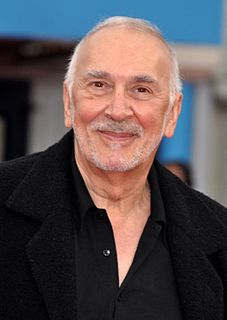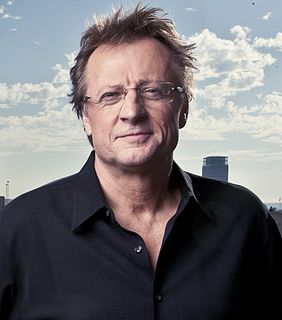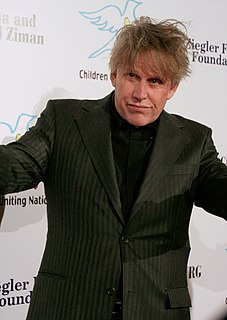A Quote by Sara Paretsky
You have to be a ruthless editor of your own prose. Over the years, I've learned that the best way to incorporate research into the narrative is to turn it into action.
Related Quotes
I have a great editor and I enjoy, in a masochistic way, being ruthless about my own performance. How do I know, but I think I'm quite good at saying, "That's no good. That's no good. That's it. That's it. That's good." And I'm with the editor who goes, "No, I think you're wrong. That's not your best." There's an initial point in the editing, if you're directing yourself, especially in my case, where you go, "Ouch, ouch, ouch, I can't watch this." And then, there's a point where you become hard-nosed and just take your neurosis away and go, "What's working? That's okay. That's okay. We can lose that, and lose that." You get objective about it.
Over the years, I learned that in my career, unlike in life, sometimes my wheelchair is its own automatic door opener. I was able to win the OWN competition by applying one simple principle: be funny, and admit you suck before anyone else can call you out on it. In other words, make the narrative of your failure a comedy.
When something goes wrong, what's the best course of action? To change your direction. The word repentance means to stop going one direction (your own way) and turn toward the right direction (God's way). Your past may be a part of who you are, but it certainly doesn't have to define your future. Or if you feel stuck and unable to change directions and move toward God, think of this transformation another way. The Bible says that God is the Potter and we are his clay (Jer. 18:2-6).
Be ruthless in one important area: Yourself. Be ruthless about your commitment to Christ. Be ruthless about your intellectual growth. Be ruthless about finishing well. One of the biggest areas we should be ruthless about is our time. How much time do you spend complaining about your problems to people who can't help you solve them? How much time do you talk when you should be doing? When it comes to others, be gracious. But when it comes to you and your time, be ruthless.
My last point about getting started as a writer: do something first, good or bad, successful or not, and write it up before approaching an editor. The best introduction to an editor is your own written work, published or not. I traveled across Siberia on my own money before ever approaching an editor; I wrote my first book, Siberian Dawn, without knowing a single editor, with no idea of how to get it published. I had to risk my life on the Congo before selling my first magazine story. If the rebel spirit dwells within you, you won't wait for an invitation, you'll invade and take no hostages.
Poets seem to write more easily about love than prose writers. For a start, they own that flexible ‘I’…. Then again, poets seem able to turn bad love – selfish, shitty love – into good love poetry. Prose writers lack this power of admirable, dishonest transformation. We can only turn bad love into prose about bad love. So we are envious (and slightly distrustful) when poets talk to us of love.
Freedom is the freedom you choose, when you're not getting in your own way. The best way to start every day is to wake up and wash your face and look yourself in the mirror, right in the eyes of your reflection, and say, "don't get in my way." Because it's only when we get in our own way that we have to step back or step aside or step over here and not walk at all.



































